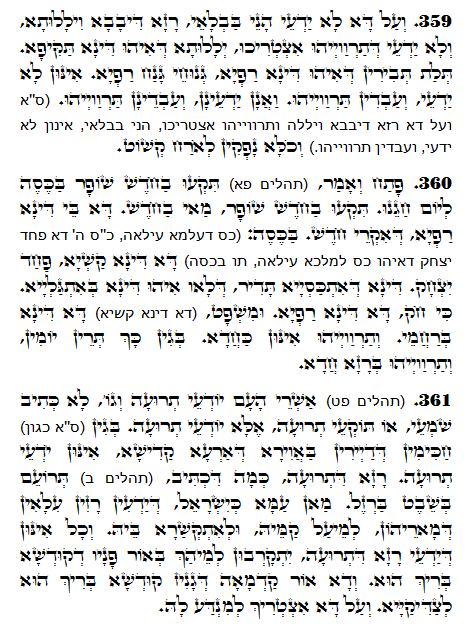Daily Zohar # 1197 – Pinchas – Take responsibility
Daily Zohar 1197
Daily Zohar 1197
Zohar Pinchas, Vol. 20 (English)/Vol 15 (Hebrew)

Hebrew translation:
Pinchas 359-361
Continue from previous DZ
1 Kings 8:59
“וְיִהְיוּ דְבָרַי אֵלֶּה, אֲשֶׁר הִתְחַנַּנְתִּי לִפְנֵי יְהוָה, קְרֹבִים אֶל-יְהוָה אֱלֹהֵינוּ, יוֹמָם וָלָיְלָה: לַעֲשׂוֹת מִשְׁפַּט עַבְדּוֹ, וּמִשְׁפַּט עַמּוֹ יִשְׂרָאֵל–דְּבַר-יוֹם בְּיוֹמוֹ”
“And may these words of mine, which I have prayed before YHVH, be near to YHVH our God day and night, that he will judge his servant and judge his people of Israel according to the day in its day”
The Zohar reveals that ‘day in it day’ refers to the two days of Rosh Hashanah. The first day is the aspect of the upper three Sefirot and it deals with harsh judgment. The second day is the aspect of Zeir Anpin (Lower Six) and it deals with soft judgment.
All souls come before the judge to be evaluated by the higher court. According to the level of impurities of the soul, the court plans its Tikkun process for the coming year.
In the prayers of Rosh Hashanah we confess our sins, which are all the actions that caused impurities on our soul. The confessions are listed according to the order of the Hebrew letters for a few reasons. One is to list all impurities related to all levels of the soul. Second reason is to make the confession in public and be responsible for each other. The list may contain confession on sins that we never did but we come as one to be judged and have the power to influence the court to bring more mercy to our correction process. We also conceal the individual sins when we confess to all.
The heart should be with pure consciousness to remove the impurities in the coming year so the court will be considerate.
The Israelites souls come first before YHVH, their judge. With the tool of the Shofar we are able to influence the judgment and bring mercy instead. The works of Rosh Hashanah is part of the responsibility of all Israelites in bringing light of mercy to the world and cleanse it from impurities.
On Yom Kippur, that is ten days later, we receive the Light and the correction plan for the New Year. On Sukkot, that is only 4 days later but lasts for seven days, we begin to share the light we received with all nations of the world.
The level of chaos in the world is directly related to the spiritual work of the Israelites. From looking at the world around us we realize that most Israelites still need to be corrected and enlarge their spiritual vessel in order to channel more light to the world.
The people that study Zohar are doing great but in addition they should encourage others (gently) to come closer to the light and share it.
{||}

 Previous: Pinchas
Previous: Pinchas

